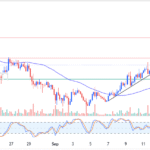Ripple has announced the expansion of its USD-backed stablecoin, RLUSD, to institutions across Africa. This strategic initiative is part of Ripple’s ongoing effort to enhance its global footprint, with RLUSD being made available through key local partners: Chipper Cash, VALR, and Yellow Card.
Chipper Cash operates as a mobile payments provider, while VALR functions as a significant cryptocurrency exchange in South Africa. Yellow Card, on the other hand, offers digital payment services both in South Africa and throughout Africa. These collaborations are set to provide secure and compliant dollar solutions to various businesses and financial institutions across the continent.
Since its launch in late 2024, RLUSD has gained traction internationally, now boasting a market cap of $700 million. The stablecoin is built on principles of trust, utility, and compliance and is issued by a trust company regulated by the New York Department of Financial Services. This regulatory backing strengthens the legal foundation of RLUSD, facilitating a broader acceptance among institutions.
Categories of use for RLUSD have emerged, including applications in cross-border payments, trading of tokenized assets, and serving as collateral in both cryptocurrency and traditional financial markets. Ripple believes that there is substantial demand for enterprise-grade stablecoins in Africa. Many businesses across the continent are seeking reliable financial tools to enhance treasury operations and streamline international transactions.
Jack McDonald, Ripple’s Senior Vice President of Stablecoins, expressed enthusiasm regarding the demand for RLUSD. He emphasized that Africa represents a crucial market for the company as it integrates RLUSD into its cross-border payments solution for African partners.
Additionally, Ripple is exploring the humanitarian potential of RLUSD in Africa. In Kenya, a collaboration with Mercy Corps Ventures has been established to pilot a climate risk insurance model. In this initiative, RLUSD is held in escrow and released automatically when predefined weather conditions, such as drought, are triggered. This application exemplifies how blockchain technology and stablecoins can provide innovative solutions in response to emergencies.
Chris Maurice, CEO of Yellow Card, emphasized that RLUSD is tailored for African users, noting the significance of generating stable digital assets for secure transactions and responsible financial planning. He described RLUSD as a transparent, compliant solution designed for everyday business needs.
Ripple’s entry into the African market aligns with a global trend towards increased demand for stablecoins, driven by the need for more efficient, cost-effective, and secure financial infrastructure. RLUSD aims to fulfill these requirements, presenting itself as a regulated mechanism for financial transactions.
In summary, Ripple’s expansion of RLUSD into Africa, coupled with its partnerships and real-world applications, positions the company to alter the landscape of digital asset utilization among businesses and governments across the continent. This development is anticipated to foster greater accessibility to advanced financial tools for institutions operating in Africa.







